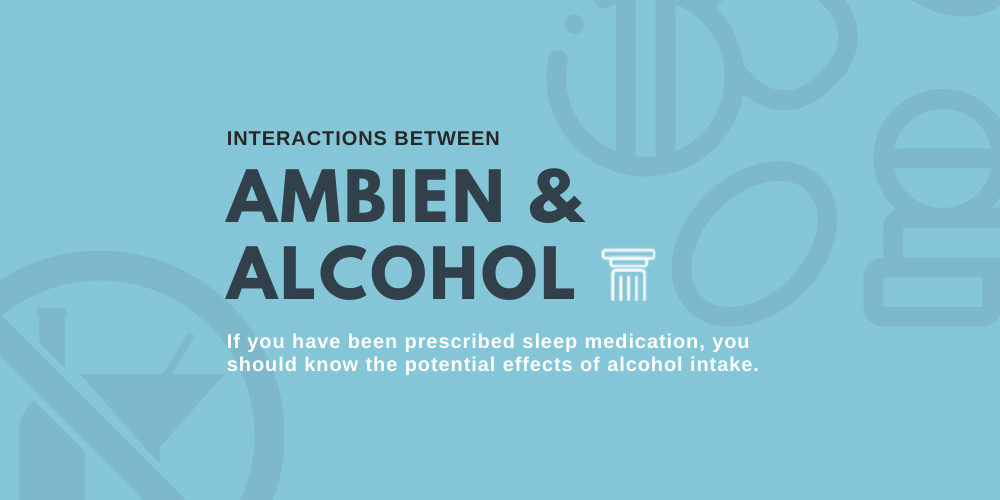If you routinely experience difficulties falling asleep or staying asleep, your doctor might prescribe you a medication called Ambien. While people with insomnia, circadian rhythm disruptions and other sleep disorders can find relief from their symptoms by taking Ambien, this prescription drug can also bring some significant risks – especially when combined with alcohol.
How Does Ambien Work?
Ambien is a sedative, which works by slowing activity in the brain and central nervous system. Though this drug allows people to fall asleep quickly, it is not a “cure” for insomnia or any other sleep disorder. Usually, doctors only write prescriptions for short-term supplies of Ambien, alongside recommendations for other ways their patients can improve their sleep quality in the long run.
Whenever your doctor prescribes you a medication, it’s crucial to read all the information that comes with it. In doing so, you can learn valuable details about potential side effects, contraindications and interactions with other drugs you regularly take. For example, the labels on sleeping pills like Ambien have an explicit warning not to drive a car or drink alcohol while taking the drug.
The Risks of Combining Ambien and Alcohol
Mixing Ambien and alcohol can be extremely dangerous, and could even lead to an accidental overdose. Alcohol impacts the same areas of the brain and central nervous system as Ambien, which magnifies the effects of both substances. If you take Ambien after drinking an alcoholic beverage, you can experience severely suppressed breathing, heart rate and brain function, which can result in a coma or death.
Other potential side effects of combining Ambien and alcohol include:
- Extreme confusion, disorientation, dizziness or drowsiness
- Hallucinations
- Impaired motor control
- Unusual behavior, such as sleepwalking or sleep eating
- Memory problems
Understanding the Link Between Drinking and Insomnia
Sleep disorders can be a symptom of several health conditions – including Parkinson’s disease, sleep apnea, digestive issues, anxiety and PTSD. However, if your doctor has ruled out these other causes for your insomnia, they might ask you about your alcohol use.
Since alcohol is a depressant, many people assume it can help them fall asleep fast and enjoy a full night of uninterrupted rest. Unfortunately, insomniacs who reach for alcohol night after night are putting themselves at an increased risk of developing a substance use disorder. Alcohol also disrupts the sleep cycle, which means people who frequently self-medicate their insomnia with a nightcap are more likely to wake up several times per night and have trouble falling back asleep.
Are You Ready to Live a Life of Purpose?
From medication-assisted, comfortable detox to our aftercare programs, Pillars Recovery offers a complete continuum of care and a private, peaceful setting to help young adults overcome addiction and related mental health challenges. Our locations in Southern California provide plenty of opportunities for a diverse range of treatment programs and activities, including art therapy, group personal training and beach outings. If you’d like to verify your insurance coverage or learn more about recovering in Laguna Beach and Costa Mesa, please reach out to us today.







